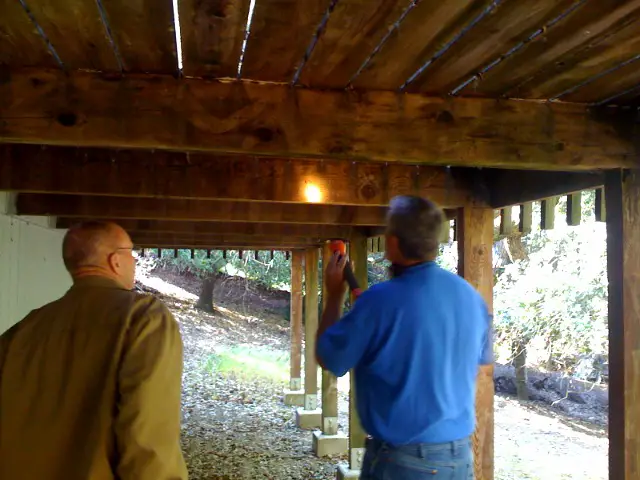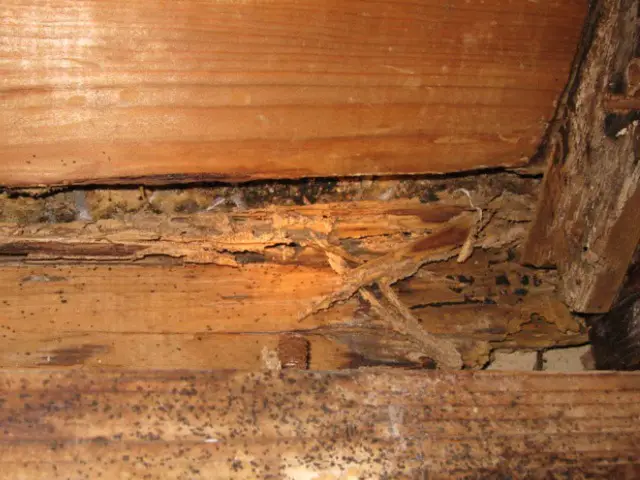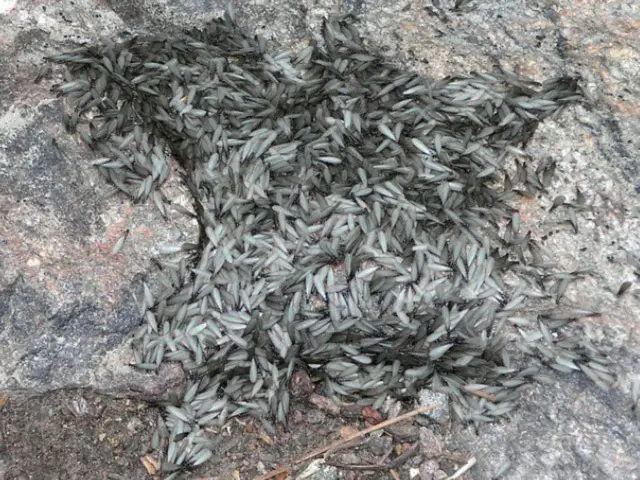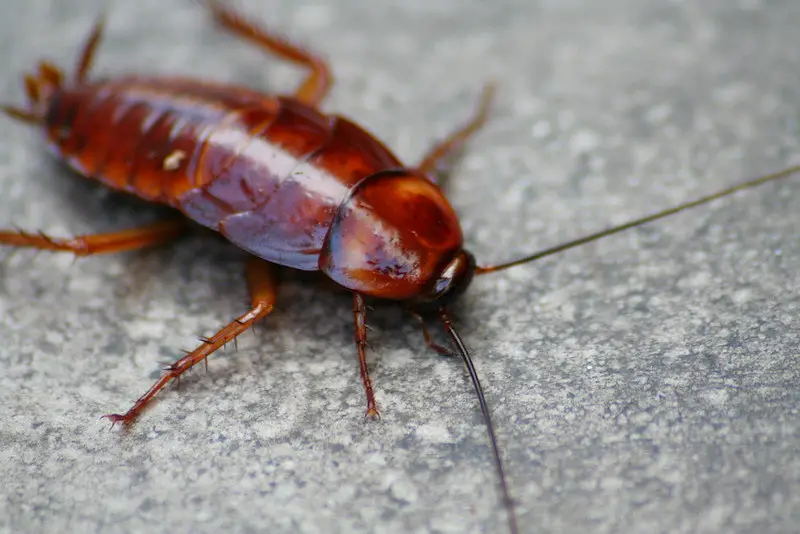How do you get rid of rodents in walls?
Using traps, you can get rid of rodents in walls – such as mice and rats. Rodents live in hidden areas within homes. Rats, mice and other rodents love to hide in wall interiors. Rodents can fit through extremely small openings in walls. Once they are inside your walls, rodents can be difficult to get rid of.
Rodents living within your walls rarely leave their nests during the day. But just because you don’t see them it doesn’t mean they aren’t there. Rodents often make clawing and gnawing sounds. Before attempting to eliminate the rodents, identify what kind of rodents infest your home.
Do you have mice living inside your walls? Or, do you have rats living inside your walls? Mice are easier to get rid of than other rodents.
If you want to control rodents inside your walls, look for visible holes.
Rodents cause significant damage to wooden and paper surfaces and human food sources. Bite or chew marks on your walls can indicate the presence of rodents.
Rodents living within your walls are forced to emerge in search of food and water. This is the best opportunity to get rid of rodents. At this time, you can kill or capture rodents using traps. If you want to speed up the process of getting rid of rodents, you can try to lure them out of walls with bait.
Use live-catch traps, glue traps or spring-loaded traps to control rodents. Rodent traps are commercially available. Some traps kill captured mice, while others require you to release them.
The rodent traps must be placed where you hear or see rodents. If you don’t place the mice traps in the correct place, you won’t catch any rodents. Always keep rodent traps away from children and pets.
Related posts:
- What is the Most Effective Rodent Control?
- Can Skunks Climb Fences?
- Do Skunks Live Underground?
- How To Catch A Rat Without Killing It?
How do you get rid of rodents in the attic?
The first step to getting rid of rodents (rats and mice) in the attic is to find the entry points. Inspect eave gaps, door seals, vents, missing stones and bricks. Check for small access points to your attic.
Lay out rodent traps strategically. You can use live traps or snap traps. Place rodent traps in areas where you find droppings.
How do you get rid of rodents in the yard?
You can eliminate rodents (rats and mice) in the yard with traps. Each type of rodent trap uses a different method of catching a pest. And all rodent traps can be effective. Before you buy rodent traps, consider the pros and cons.
Snap rodent traps are simple and effective. They are commonly used because they catch mice and rats. Use peanut butter as bait for your traps. During winter, you can lure rodents with nesting materials such as yarn and twine.
Rodents can carry diseases. Wear gloves whenever you handle anything that might have come in contact with rodents.
Bait boxes are also effective for luring rodents. Using bait boxes will feed rodent poison. The bait boxes attract rats and mice with a smell rodents like. After the rodents consume the bait, they will die.
One drawback to using bait boxes is the smell of dead rodents. Sometimes rats and mice will hide before they die. And you might have to put up with the smell of decaying rodents. That’s why you should only place bait boxes outside.
How do you get rid of rodents fast?
You can get rid of rodents fast with traps.
How do I get rid of rodents with sound?
You cannot control rodents with sound. Some people have reported keeping mice away with sound. Unfortunately, sound is not an effective pest control method.
There are much better ways to eliminate rodents than ultrasound devices, such as snap traps.
How do I get rid of rodents under the shed?
Seal cracks and openings rodents might use to get inside your shed. Clean your shed to easily see rat and mouse droppings. Once you see droppings, you should place traps. Place rodent traps exactly where you find rodent droppings.
How do I get rid of rodents in the engine bay?
You can use electronic rodent repellent to keep rats and mice out of the engine bay.
How do I get rid of rodents in the ceiling?
Traps are the most effective for getting rid of rodents in the ceiling. If you use poison, you might have to smell the decaying body of a dead mouse or rat. People report that snap traps are the most effective traps for controlling rodents.
How do you get rid of rodents in a car engine?
You can use electronic rodent repellent to keep rats and mice out of the car engine.
How do you get rid of rodents in a garage?
The best way to get rats, mice and other rodents out of your garage is to use traps. Homeowners report snap traps to be the most effective method for controlling rodents. For best results, use baited snap traps in your garage. Place them where you find rodent droppings.
How do you get rid of rodents in a garden?
Using traps is the best way to get mice, rats, and other rodents out of your garden. Homeowners report snap traps as the most effective method for controlling rodents in your garden. For best results, use baited snap traps. Place the baited snap traps where you find rodent droppings.
How do I get rid of rodents under a house?
Clean the area under your house to keep rodents away. Rats, mice, and other rodents prefer to nest in messy areas. Make sure there is no trash or debris under the house.
You may smell it for weeks if you use poison to kill a rodent under your house. Remember that poison is dangerous for humans and pets.
Traps are the best way to eliminate mice, rats, and other rodents under a house. For best results, use baited traps. Under a house, place the baited snap traps where you find rodent droppings.
Why is rodent prevention so difficult?
As with most things in life, an ounce of prevention is worth a pound of cure when it comes to rat control techniques. Unfortunately, most people don’t realize they have a rodent problem until an infestation is already underway. Still, even if you do clear out your rodent infestation, they will inevitably return without proper preventative measures.
Whether you live in a city or in the countryside, there are going to be rats outside your house. Wherever there is a human population, there are rats surviving on our refuse. Rats tend to be survivors and are relentless in finding different ways into your home. Pest control companies use preventative techniques to seal your home against intruders, keeping rats from getting into your attic, walls, basement, commercial building or other property. It’s important to find the entry holes rats use to get into your home and seal them shut, preventing rodents from entering in the future.
Two main factors expose your house to possible rat infestations. If you live in an urban or suburban area with a rat population, and if your property offers food, water and shelter, you are likely to find rodents. Rats like to find a place where they can scavenge and hide their young away in a nest. Locations like attics, garages, and basements are prime locations for rats.
Rodent Control Tips
Oh, the weather outside is frightful! With the temperatures dropping, and the chilly winds beginning to blow in, winter is officially here! It’s getting darker earlier, and you’re in a rush to get out of the cold and into your home.
Everyone is ready to begin the rituals of winter hibernation- drinking hot cocoa, getting cozy under a warm blanket or near a fireplace, and settling in with a good book (or binge-watching Netflix!) Sounds amazing, right? But the truth is, you’re not the only one escaping the outside winter chill by seeking the warmth and shelter of home.
Rodents, like rats, hate the cold just as much as you do. They are wild creatures but do not stand up well to the harsh weather conditions that December, January and February bring. These crafty rodents are on the prowl to find warm and dry shelter for the frigid winter months. And they have plenty of tactics for how they’ll expose any weaknesses in your homes’ defenses to gain entry.
You’re busy decorating inside and out, cooking, and getting your home for guests- but a rat is a truly unwanted guest. Undoubtedly, a rat scuttling across the living room floor would be the quickest way to wreak havoc and utterly destroy a holiday party!
This winter, put rat control at the top of your priority list. With proactive measures and vigilance, you can control the situation. Follow these steps to keep home safe and keep rats out!
Keep food away and protected from rodents
Are you enjoying the smell of Christmas cookies filling your kitchen? That aroma is just as appealing to rats as it is to you! Rats especially love grain products and are known to raid pantries. If a rat comes into contact with any of your food or baking supplies, it will become contaminated with bacteria. Rodents carry harmful diseases and pose a serious threat to your health if they gain access to your kitchen.
Keep food in airtight containers to safeguard your kitchen space and dispose of garbage regularly. Rats can gnaw through plastic baggies and cardboard boxes. Go for sturdy Tupperware or Pyrex containers!
Remove clutter to keep rodents out
Have you shopped until you dropped this holiday season? Are the Amazon boxes piling up? Is the wrapping paper everywhere? How’s your storage organization? Rats absolutely love to make nests in cardboard boxes. They can easily gnaw their way in and hunker down, staying anonymous in all the surrounding clutter and mess.
This rat prevention step is easy! Simply stay on top of your organization and don’t give rats an opportunity to find a spot that’s out of eyesight. Rats have nasty habits and love to gnaw and shred any material they can. Seriously consider investing in large plastic sealed storage containers rather than cardboard boxes. This will protect any valuable or sentimental items you may have tucked away in storage.
Move the woodpile
This tip may sound simple, but it is very important! Now that it’s cold out, you’re probably using that fireplace every night! Whether for the functional purpose of heating your home or just for the pleasant and cozy aesthetic, a fire in the hearth feels right during winter.
So, where do you keep the wood? Where, it’s convenient- against the house, near a door? Oops! This is a big no-no. These are a favorite warm, moist hiding place for rats because they provide shelter, and often water has collected there. The closer the woodpile is to your home, the more likely you are to experience a rat control problem.
To be safe, you should store firewood at least 20 feet from the home and several feet off the ground. Sure, it’s a hike out to the yard to get it, but at least you aren’t giving sneaky rats an opportunity to get close and weasel their way in.
Rodent proof the outside of your home
If leaves, debris, or even snow has collected around the perimeter of your home, it’ll be hard to get a good look at the foundation. Clearing all debris and carefully inspecting the exterior of your house for cracks and holes is probably the most effective and critical proactive rat control measure you can take this winter.
Look carefully at areas where utilities and pipes enter the home. Closely inspect vents, registers, and gutters. Even try to spot any weaknesses or obvious damage that may leave your roof vulnerable. Not sure exactly what you’re looking at? Get in touch with your local rat control experts and let the pros do a thorough inspection inside and out.
Once any potential cracks or crevices have been located (a rat can enter through a crack just 1/2 an inch wide!), it is critical that they are sealed properly. Use an effective rodent proofing system to fill and cover any crack and holes with metal that rats cannot chew through.
With a little work, rat control is attainable.
Home maintenance
Keeping up with Small home maintenance tasks goes a long way when it comes to rat control. Add replacing loose mortar and weather stripping around basement foundation and windows to your to-do list, as well as installing gutters or diverts to channel water away from your home and installing screens over chimney vents and openings.
These are simple and inexpensive home maintenance measures that any homeowner can do. You don’t have to be a handyman! Reinforcing and sealing windows will not only keep rats out, but it will also keep warm air in, saving you energy and money.
Channeling water away from your home with effective gutters will ensure that you don’t collect standing water inside your home, eliminating potential water sources for rats and lowering the potential for mold. Installing screens is just another basic way to control rats and keep them out! Only Santa should be coming down that chimney this winter!
Check electrical wiring
Electrical wiring is an important part of a well-functioning and safe home. Damaged wiring is not only an inconvenience that can cause power shortages and the like, but can be seriously dangerous and is a leading cause of house fires.
Start outside and check any wiring you may have on the exterior of your home for cable or Christmas lights. Inspect wires signs of gnaw marks. We know rats love to nest in kitchens near a food source, so move into the kitchen where many of your main appliances are and check all the wiring for any damage or visible fraying.
This critical step will help you catch any signs of tampering with your wiring and keep your family and your home safe!
There’s no place like home for the holidays. Give yourself the gift of peace of mind and safety by putting in the time and effort into these proactive steps for rat control early.
This winter, be confident that your home is only be used as a warm, safe haven for you and your family. Keep rats and the dangers they pose outside by practicing effective winter rat control methods. For full protection, team up with your local pest control experts.
Rodent Prevention Steps
- Remove debris from the property. (This includes compost piles)
- Seal all gaps leading into the house.
- Do not leave pet food out or garbage uncovered.
- A cat may help but is only a partial solution.
Ineffective Rodent Prevention Techniques
- Rat repellents: Ammonia, mothballs, cat urine.
- Ultra Sonic repellent devices
- Bird of Prey decoys
Find all entry points and seal them against future rodent intrusions.
The best method of keeping rats out of your home is to stop them from getting inside at all. Rats are far less of a nuisance outside the home, but once they get inside, they can lead to all sorts of problems. Once they get in, they will be leaving droppings in the attic, scurrying through the walls, invading the pantry and generally spreading contamination.
The best method is to prevent the rats from getting in. Seal up all the entry holes so rats can no longer enter your house. A hole only needs to be about the size of a quarter for a rat to make it through.
You can use a technique for sealing these holes with steel mesh or metal flashing, which rats cannot chew through. You can also use a polyurethane sealant to stop airflow, preventing rats from smelling for gaps they can chew through.
Think you could never have a rodent control problem? Think again. There is this perception that rats and mice live in dirty, abandoned or unkempt spaces. But the truth is, even in the cleanest homes, rodent control can still be a difficult task. Why is that? Mice and rats are relatively smart and able creatures, with habits and lifestyles making it difficult to get rid of them. But with a fuller understanding of their nature and habits, you’ll be better equipped to control these crafty rodents!
Common Household Rodents
The house mouse is the most common household rodent; at 1/2 -1 oz, it’s the smallest in size. Roof rats are another commonly sighted household rodent and are often mistaken for a mouse because, at 5-9 oz, they are relatively small in stature. The larger residential rodent is the Norway rat, which can weigh 7-18 oz. Rats are very cautious and shrewd creatures, whereas mice are more curious in nature.
Their small size and ability to fit through extremely tight spaces is one reason why these rodents are tough to control. Both of these rodents can squeeze through the narrowest cracks in your home- 1/4 inch for mice and 1/2 inch for rats.
Pest control tip: Thoroughly check all walls and baseboards for cracks or gaps and fill them in.
Gnawing
The word rodent literally means “to gnaw.” Mice and rats alike have the habit of burrowing and gnawing through a variety of residential materials to find a suitable home. Most people are aware that rodents can chew through woodwork and insulation. You’ll be shocked to discover that they are capable of gnawing their way through so much more- lead sheathing, cinder block, aluminum siding and even some concrete!
Rodent control tip: You may not see rodents when they are trying to gnaw their way around, but you can often hear them. Schedule a rodent control professional to assess the situation at the first sounds of gnawing, and you’ll prevent potential damage and the rodents from spreading.
Nesting
Rodents prefer to nest in tight, warm, hidden places. This is tricky because they’ll nest in spaces you rarely see (the attic) or that you can’t even access (in between the walls). In addition, rodents normally have a limited range of motion. Rats habitually move within a range of 98 to 164 ft. and a house mouse within 10 to 33 ft from where they nest. However, if they become comfortable in the space, their range of movement will increase.
Rodent control tip: Don’t wait until it’s too late! Find and eliminate the rodents’ nest while their range of motion is still small. This will minimize the scope of damage to your home.
Nocturnal Activity
Rats and mice are nocturnal creatures. Nearly all of their activity – burrowing, gnawing, foraging for food- happens while you sleep. That is why it is entirely possible that you could have a rodent or rodent infestation that has gone unnoticed. Rodents are rarely seen during waking hours. You are more likely to identify a rodent problem by finding other clues, such as rodent droppings. Keep an eye out for them in the kitchen around low cabinets or baseboards and in rarely disturbed storage spaces.
Rat control tip: Rodent feces, droppings, and urine can carry harmful diseases. If you come into contact with them, wash your hands thoroughly. Next, contact rodent control experts. They’ll have the proper protective gear to safely eliminate all hazards from your home.
No doubt about it; rodent control is, though. But knowledge is power and armed with the right information and the help of rodent control professionals, you can successfully protect your home.




